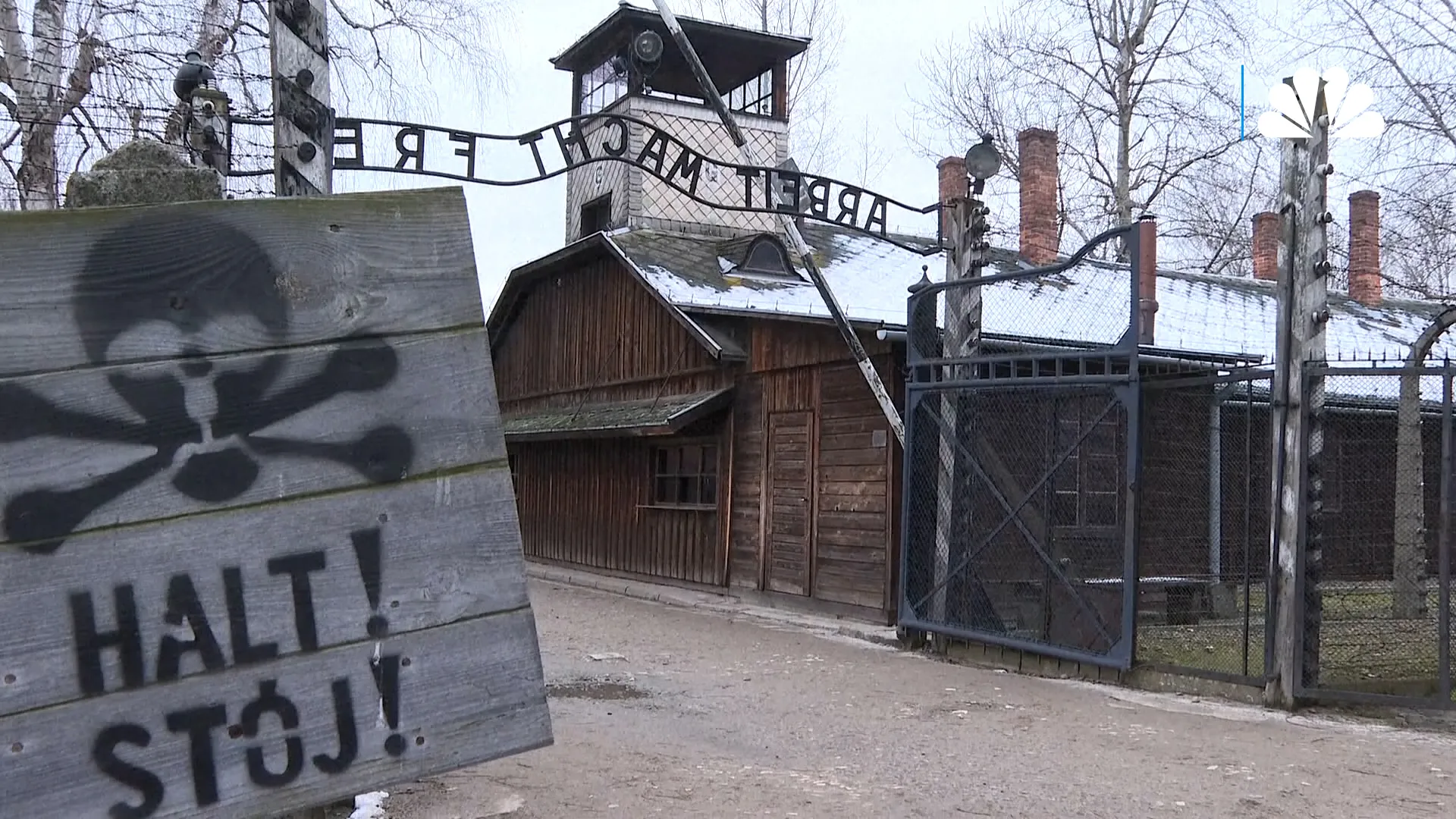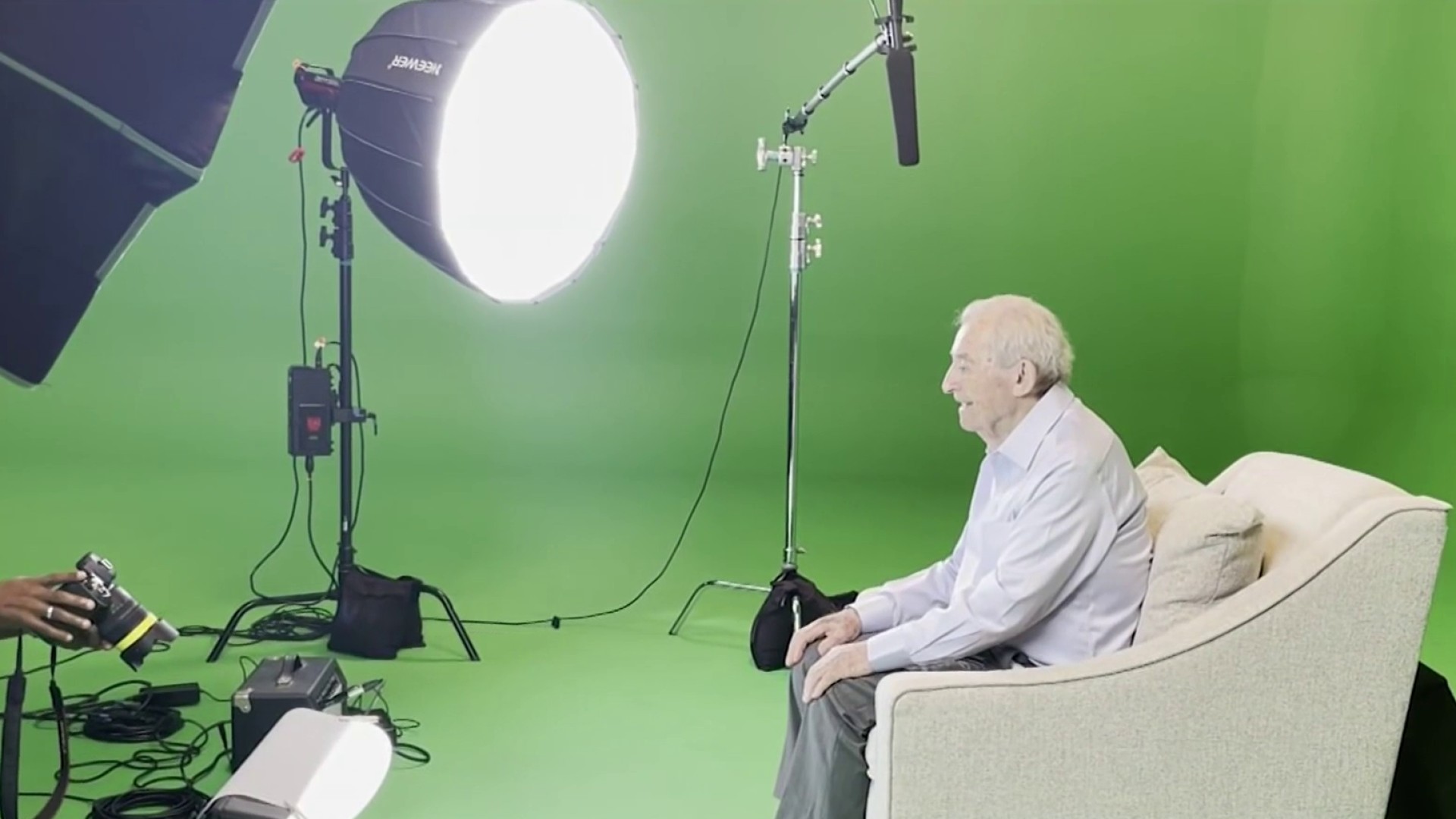Everywhere she goes, Irene Zisblatt ends up hugging people who are moved by her life story.
It happened again Friday, when a group of people gathered as we were interviewing Zisblatt inside the Holocaust Reflection and Resource Room at Nova Southeastern University.
When we finished, some who had been watching were weeping.
“I’m the only survivor," Zisblatt said. "I lost my mother, father, my siblings, my grandparents."
Get South Florida local news, weather forecasts and entertainment stories to your inbox. Sign up for NBC South Florida newsletters.
She’s 92 now. Zisblatt lived the experiences documented by the exhibits in the Holocaust room. When she arrived at Auschwitz-Birkenau at age 13, the infamous Dr. Josef Mengele chose her for experimentation and separated her from her siblings and her mother.
“He kicked her away from me, and I begged him to let me go with my family, but he just kicked me away, too, in the opposite direction. And then I heard my mother call out, 'Don’t cry, I will come for you later' — that was the last time I heard her voice,” Zisblatt said, her voice cracking even now, all these decades later.
Like many Holocaust survivors, Zisblatt feels a responsibility to tell her story, so she wrote a book and talked to school groups and other gatherings.
“You see I wear a pin, it says 'zahor' — it means remember,” Zisblatt said, showing us her pin of Hebrew letters.
Narrow brushes with death are something every survivor has in common. Zisblatt was literally at the door of the gas chamber, blocking it from closing, so a camp worker pulled her out to shut the opening. Everyone inside was killed, but that same worker threw Zisblatt onto a train that had stopped on the tracks adjacent to that particular gas chamber. She ended up at a different concentration camp, and managed to navigate her way, alone, through the rest of the terror until the war ended.
This year, Holocaust Remembrance Day comes at a time of resurgent antisemitism and extremist incidents.
“We here in Florida saw a 50% increase in antisemitic incidents between 2020 and 2021,” said Sarah Emmons, regional director of the Anti-Defamation League.
The ADL tracks hate crimes of all kinds. Emmons said when elected leaders don’t strongly condemn extremist groups, it sends a signal.
“We know from their chats online that they feel emboldened, they feel like this sort of behavior is allowed in our state of Florida and it really encourages them to continue this hateful activity,” Emmons said.
Zisblatt said no one thought the rise of the Nazis would lead to perhaps the greatest crime against humanity ever perpetrated, but it did, because we're not vigilant in opposition.
“People took things for granted, 'Oh, it’s only gonna blow over,' it didn’t blow over," Zisblatt said. "It became a big bomb and then it exploded, and then it was too late to stop it, so let’s not have that again.”
With her own eyes, Zisblatt saw that unchecked extremism can lead to the unthinkable becoming reality. She said this is a day to take the saying, “never forget” to heart.



